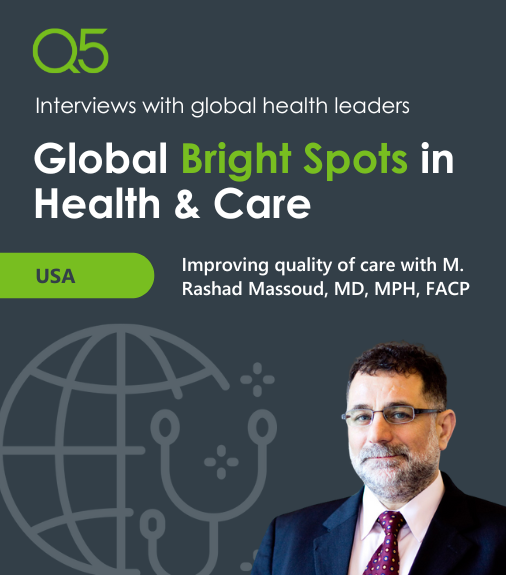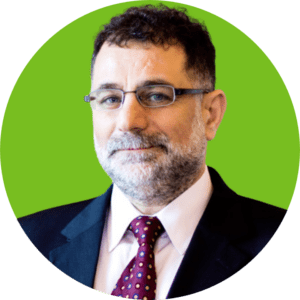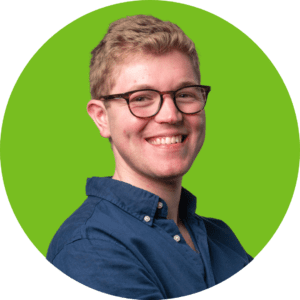

M. Rashad Massoud, MD, MPH, FACP.
Visiting Faculty, Harvard T. H. Chan School of Public Health.
Rashad is a medical doctor turned c-suite executive who has worked to improve healthcare in 102 countries. Based in Washington DC, Rashad has led healthcare improvement and disaster response efforts with the organisations such as Americares, USAID, UNICEF, the World Bank and World Health Organisation, to name just a few.
Reading time: approx. 10 minutes
If you would like to listen to the audio version of this interview, you can listen to our podcast below.
That’s simple, my father is a physician, so I grew up in medical circles. This is a small place where people know each other, and growing up I used to just love what he did. I remember as a child, if I didn’t have school the next day and I could hear the phone ring in the night, I knew my father was going to see a patient, so I would quietly get up and dressed and surprise him at the front door, ready to go with him. I would get in the car and go with him. For me, that was the environment I grew up in. I loved seeing that and I wanted to do it.
I’m a faculty member (visiting faculty) with Harvard Chan, teaching improvement, helping with the health and humanitarian rights, and the global health security agenda, among others. But really, I’m an improver. I help organisations improve quality of care, and by that I mean focus on improving outcomes, efficiency, patient and staff satisfaction, operational excellence.
The other things that I do is, when we find something that works better, I develop methods for scaling it up and implement it widely. I’ve also worked on instituting improvement and by that I mean making improvement be part of the fabric of the organisation, so not only do you maintain the results but you maintain the effort by which other results can be achieved. In conjunction with that I’ve helped many countries develop national quality policies and strategies, so developing a plan for the country on how to continually improve.
An area I got very interested in was learning about improvement, and that really came out of getting great results and being questioned on ‘How do you know that these results are because of what you did rather than something else?’, ‘How do you know it wasn’t because of something else, or just nature taking its course and you just happened to be there?’ and that got me to delve into the idea of how do we learn about improvement. The first thing that I knew is that our gold standard randomized controlled trials wouldn’t work because you can’t control for the factors that affect it, this is not efficacy research, this is effectiveness research. The other thing I learnt as I was doing the work is how you manage the knowledge related to the work, so you don’t have to reinvent the wheel every time you’re doing things.
So it’s interesting for me because a lot of the time, particularly in global health, people think ‘here’s a solution, therefore I can take it and implement it somewhere else’. Well, the world that we operate in is very contextual and a lot of the solutions that work in one place don’t necessarily work in another place.
Now with improvement methods, one of the things I’ve learned is that the change might work in a place, and that same change will not work somewhere else, but something else will work that is related to the same idea, the same concept. So differentiating between a change and a change concept, and then being able to understand the change concept and say, ‘oh, if that’s the change concept, then here’s how it could also apply’. And then you start to develop other ideas about how to make that same concept work in different settings based on the context that they have.
That in itself is a huge amount of knowledge and it’s not a straight-forward, linear transplantation of one thing that succeeded somewhere to somewhere else, but reinventing it without having to reinvent the wheel altogether. So managing that knowledge of what works, what doesn’t work, why it works, how it works, what are the concepts behind it, what are the specific examples that we have, allows us to improve much faster than if we don’t. As part of my work, we call them ‘knowledge products’, because we also consider what is the knowledge product related to what we produce, how do we generate that information, how do we synthesize that information, how do we put it in a product that others can find helpful.
My work with crises started way before, so for me the pandemic was more straight-forward to deal with than for most of my colleagues, just because I had already gone through it. So let me reflect on my earlier experiences. Early on in my career I was Head of Improvement in my country where things were not stable at all, and on any day, anything could happen. So we developed a simple rule: if you can’t get to the office to do what you’re supposed to do that day, then you go to the nearest health facility where you can be the most helpful. You had to have that empowerment, delegation and clarity on: don’t sit idle at home, do the best you can. If there’s problems that aren’t getting you to where you need to be, then there’s probably a need for you to be doing something else on that day. For example, on some days instead of doing improvement, I’d be helping the injured, and one day the emergency room was so overwhelmed, I set up a whole new emergency room just in the waiting area. I later realised that those things gave us a lot of credibility, because not only am I here to improve quality of care, but I’m also here rolling up my sleeves and doing things when they needed me most.
Come the pandemic, I could foresee things and understood what the best plan was to prevent things from happening, and I sent my team home one week before the rest of the company did. We also had the means of communication as we were a group that travels, so I was on Zoom in 2015 – 5 years before the pandemic all my staff were using Zoom as our main form of communication. We were lucky that the nature of our work enabled us to be ahead of the game.
Early on in my career, I worked as the Head of Improvement for the health authority that was stipulated by the peace agreement, it was called the Palestine Council for Health. The head of the Palestine Council for Health was a very visionary person and what I learned from him is empowerment. The empowerment that he gave me allowed me to fly high and it became mainstay for me. That’s how I operate because I felt the difference. A lot of my staff tell me that I’m good at empowering people to do things.
On a personal level, what really surprised me was that things are much more outside one’s ability to control than one might think. You may think something is possible and then you find it really isn’t and that the factors that affect it are beyond one’s ability to control. That’s what surprised me the most, how little control there is. This led me to start thinking about how you can influence it, having an influence which later on makes it happen, or through a series of steps.
What also surprised me is how many people are comfortable with the status quo. That are happy with things being what they are and keeping them as they are, as if leadership is a matter of steady state. I disagree with that. I think the environment is constantly changing and leadership is about how one adapts to meet that change.
The single most important thing for me is integrity. Honesty, integrity, those are the qualities that matter. Everything else you can teach. Those you cannot. If they don’t exist, then there’s no point in even starting the conversation or continuing the conversation once you’ve discovered that. But beyond that, everything else, is a matter of training and skills. And nobody has them all, and everybody can do with a little bit more upskilling, myself included.
A lot of staff when they first start are focused on the technical competencies, which are very important. But I would say, don’t forget that is not what leadership is about. Leadership is about the soft skills. It’s about how you deal with people, how you are able to navigate muddy waters.
When I was at University Research Co., LLC, I developed a programme called the Healthcare Improvement Fellows and I had two fellows. Their job description was my job description, and their filing system was my filing system. Between the two of them they would be in my meetings, prepare emails, drafts and documents, they’d participate with me in activities I was in, they’d travel with me for work. The idea is that you get to see what it is like to run a major global health portfolio. I think with young staff it is really important to give them that opportunity. One of them went on to study an MPH (Master’s Degree in Public Health) at one of the top universities, and he said to me ‘I learnt more in my fellowship with you than I did in my MPH’. The most important thing is, find a good mentor. Having a good mentor early on in your career is really important.
What is the best advice you’ve been given?
People forget what you said, people forget what you did, but they remember how you made them feel.
Where do you find your energy or courage?
There are two sources of inspiration for me. One is the mission itself, what am I trying to do. And two, who am I trying to do it with.
What are you most proud of?
All the different improvements that we’ve done everywhere in the world and the significant results we’ve achieved in places that we thought were practically impossible to accomplish anything in. But for me, I think the one that matters on a personal level most is, after years of introducing improvement to the Russian Federation, I was asked if I would introduce it into their Medical School’s curricula and asked me to teach the first course at my Alma Mater. So I got to interact with them and teach it there, and they would be teaching it from then onwards, starting with my Alma Mater and then going to the rest of the Russian Federation.
What advice would you give a younger version of yourself?
Take a little bit more care of yourself.
What are the top 3 leadership traits you admire?
Integrity, compassion, empowerment.

Global Head of Health
